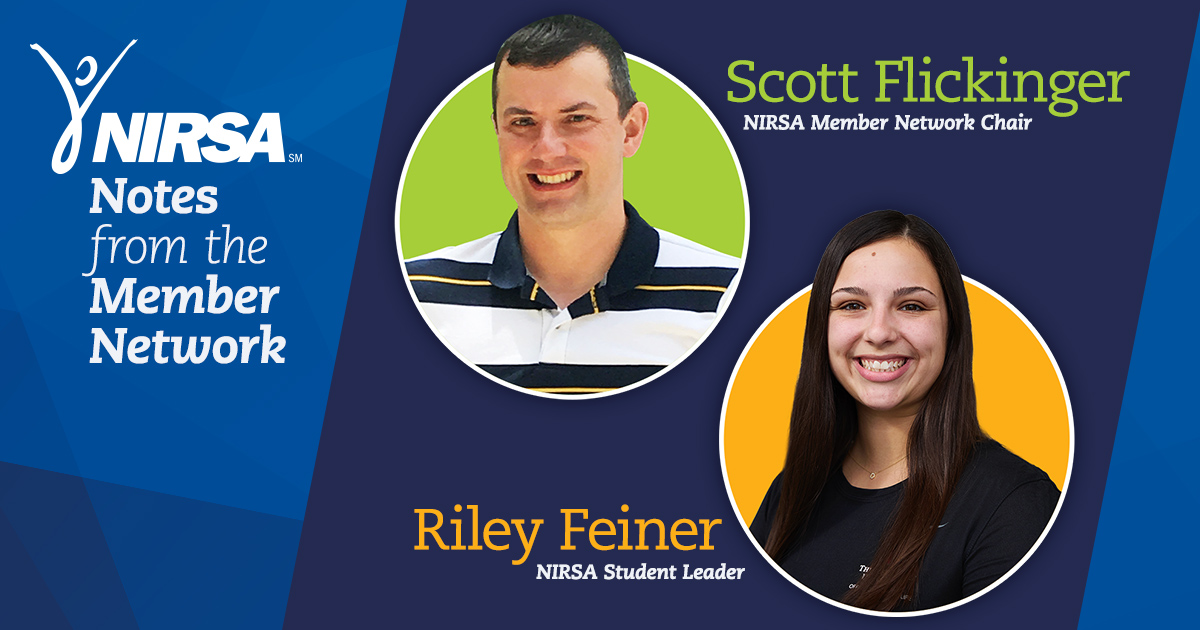By Kurt Klier, Manager of Cole Fieldhouse and Reckord Armory at the University of Maryland-College Park
The NIRSA Championship Series believes good sportsmanship is an integral component of competition. The Series’ Sportsmanship Statement reads in part: “We wholeheartedly embrace the position that, in order for sportsmanship to prevail, coaches, student-athletes, and fans must display respect, fairness, civility, honesty, and responsibility before, during, and after all athletic contests. We encourage fans to enthusiastically support their team, recognize the outstanding performance of opponents, and always exhibit good sportsmanship in their words and actions.”
By now, most people have seen or heard about the unsporting behavior exhibited during a high school football game in Marble-Falls, Texas on September 4. A video of the attack has gone viral; it shows two players from John Jay High School in San Antonio, Texas physically assaulting the umpire during the game. The assault was not in the form of a punch or a shove; one player violently knocked the umpire to the ground, then another player helmet-speared him in the back while he was powerless on the ground. This was no accident—it was clearly a well-practiced set of maneuvers.
A week after that game—on September 11—an official was once again assaulted at a high school football game in Texas and the incident was once again caught on video. St. Anthony High School was playing Austin Hyde Park when a small fight interrupted the game. A player is shown shoving the official in response to receiving a penalty flag for unsportsmanlike conduct.
In a press release, the National Association of Sports Officials (NASO)—which NIRSA is an educational partner with—responded to the September 4 incident by saying, “What occurred that night on that field is unacceptable and we in the officiating community will not accept it.
The first tenant of the NIRSA Championship Series states that “Participants in NIRSA Championship Series events [will] have appropriate/proper behavior, on and off the field of play.” This tenant is supported by having participants and volunteers sign a Code of Conduct, which serves as a standard for how individuals are expected to behave when participating in a NIRSA Championship Series event. The Code of Conduct reminds everyone involved that they are a member of an institution of higher learning and assume an obligation to conduct themselves in a manner compatible with the functions of an educational institution.
A common practice at regional and national events is not only recognizing the champions, but also the team that has exhibited the best sportsmanship. For example, every year at the NIRSA National Flag Football Championships one team is presented with the James L. “Jett” Smith Sportsmanship Award. Sportsmanship matters. How we treat each other matters.
I’m proud to say that NIRSA members understand this! Whether it’s on our own campuses or as part of a NIRSA Championship Series event, members understand that sportsmanship is a key component for a program’s success. Our programs cannot be successful if we choose to ignore unsporting behavior. The effects of unsporting behavior can lead to a breakdown in authority and an unpleasant game atmosphere.
Gone unchecked, unsporting behavior can be cause aggravation or irritation and can be unnerving or intimidating. Unsporting behavior is also unfair. Unfair to the other participants, the officials, the volunteers, and everyone associated with the event. The most serious effect of unsporting behavior is that it compromises safety. Simply put: unsporting behavior leads to fun for no one.
Hosts of NIRSA Championship Series events are required to read the Sportsmanship Statement before every finals match to remind everyone that the game is about “more than competition.” The last part of the announcement reads: “The NIRSA Championship Series is committed to holding tournaments in a safe environment free from bullying. Offensive language including profanity, derogatory remarks around a person’s race, ethnicity, culture, age, gender, sexual orientation, gender identity, ability, national origin, veteran status, social economic class, religion, or professional status, or other intimidating actions directed at officials, event staff, student-athletes, coaches, or team representatives will not be tolerated and are grounds for removal from the competition site.”
The hope is that coaches, student-athletes, and fans will be reminded that we are all part of a bigger picture and that we all play a role in the success of the sport—and good sportsmanship is a main ingredient in that success. It was Knute Rockne, legendary football coach at the University of Notre Dame, who said, “One player practicing sportsmanship is far better than fifty preaching it.” I firmly believe that we can call our efforts to promote sportsmanship successful if just one official, coach, student-athlete, or fan benefits from them.





